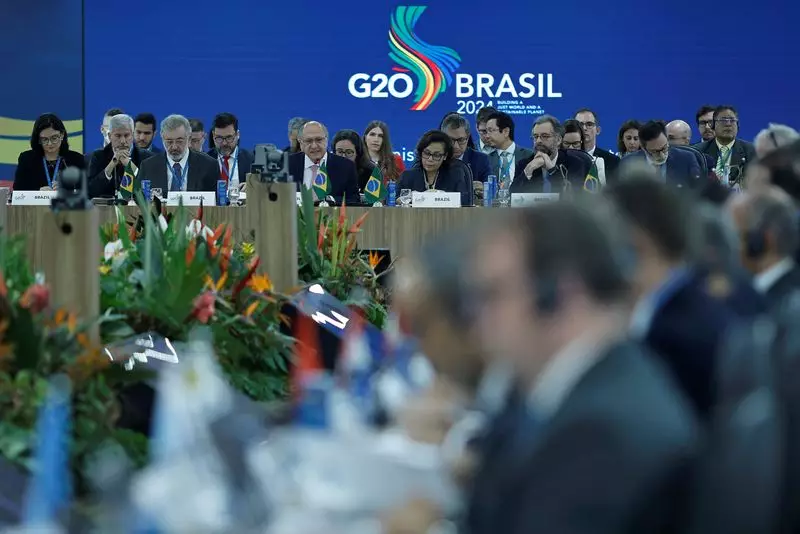In a significant gathering held in Brasilia, the G20 ministers reaffirmed their dedication to international trade that not only fosters economic growth but also promotes sustainable development. This meeting represented a pivotal point in shifting the G20’s focus towards inclusivity, especially concerning women’s participation in global trade. Brazil’s Vice President and Trade Minister Geraldo Alckmin highlighted these developments while addressing the media, framing them as essential steps towards a more equitable trading environment.
For the first time, the G20 has explicitly addressed the inclusion of women in international trade discussions. President Luiz Inácio Lula da Silva of Brazil championed this initiative, recognizing that women’s participation is not merely a matter of social equity but is vital for extensive economic growth. The ministers reached a consensus to prioritize this issue, setting a precedent for future discussions on gender-related policies in trade agreements. This commitment is expected to encourage member nations to integrate gender considerations into their trade strategies moving forward.
A crucial aspect of the meeting was the urgent call for reforming the World Trade Organization (WTO). The G20 ministers endorsed a vision for a more responsive and efficient conflict-resolution mechanism within the WTO. As global trade becomes increasingly complex, having a robust and swift resolution system is indispensable. The aim here is to create a fair and equitable trading system guided by clear rules, ensuring that all nations, regardless of their economic standing, can compete on an equal basis.
With Brazil set to host the COP30 climate summit next year, environmental considerations took center stage during the discussions. The ministers collectively endorsed a trade framework that prioritizes environmentally sustainable practices. The drive for a green economy aligns with global efforts to combat climate change, encouraging investments that do not compromise ecological integrity. Brazil’s leadership in this effort is critical, as it seeks to harmonize trade activities with sustainable development goals.
The meeting, however, was not without its complexities. While the G20 aimed to maintain focus on constructive dialogue, tensions surrounding geopolitical issues, such as the Russia-Ukraine conflict and the situation in Gaza, surfaced. Some nations advocated for addressing these topics within the G20 framework, recognizing the impact of geopolitical strife on trade dynamics. Yet, others disagreed, attempting to keep the agenda centered on trade-related discussions. This divergence showcased the delicate balance the G20 must maintain while addressing pressing global issues.
The outcomes of the meeting in Brasilia signal the G20’s commitment to creating a more inclusive and sustainable global trading system. By prioritizing women’s inclusion in trade and urgently addressing the need for reform in global trade institutions, the G20 is paving the way for a more equitable economic landscape. As these proposals head towards the upcoming summit in Rio de Janeiro, there remains cautious optimism that member countries will rally around these ideals, fostering a trade environment that is not only prosperous but also sustainable and inclusive for future generations.

